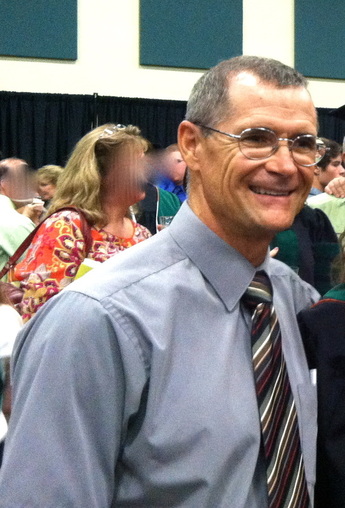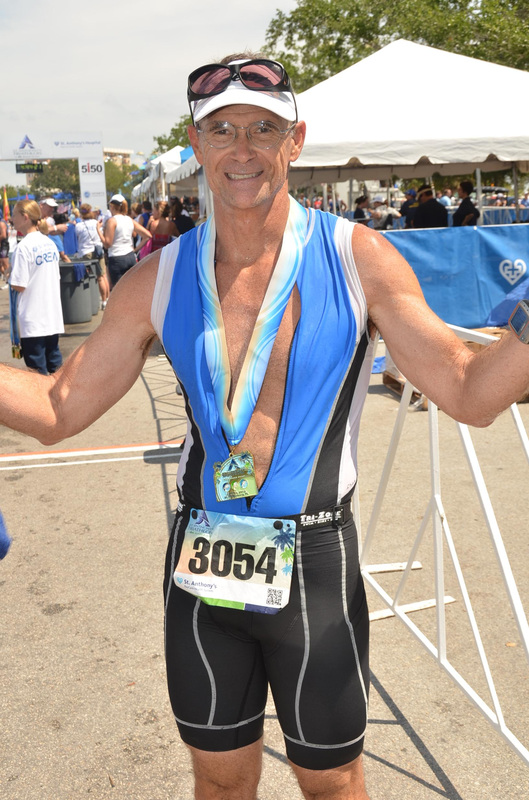I saw a physician and had some tests run. My blood sugar was 489 mg/dL, and obviously I had diabetes mellitus, type 1 in my case. I started on insulin, saw an endocrinologist, and consulted the website of the American Diabetes Association (ADA) for dietary advice. The ADA has recommended a low fat diet in line with the dietary fat-heart disease hypothesis since heart and vascular disease is the most common cause of death of the diabetic patient. Specifically, a dietary intake of 50 - 60% of calories from carbohydrates (carbs) has been recommended, some of which may be simple sugars. My diet at the time fell within their guidelines so, in theory, I thought this seemed plausible, since the ADA also recommended counting carbohydrate grams in the diet to be balanced with insulin, in my case, or other diabetes medications (for those with type 2 diabetes).
However, after 2 years of weighing my food or otherwise calculating the grams of carbohydrates eaten with each meal, and adjusting my insulin dose accordingly, there was no significant improvement in blood sugar control and no improvement in the number or severity of hypoglycemic episodes (low blood sugars). So, I abandoned the carb counting and just tried to keep the intake of carbs constant with each meal. In 2007, my wife trained for and did her first triathlon. I watched her first triathlon race and saw how she and so many others appeared to enjoy it. I had not exercised on any regular basis since high school and since I had a chronic disease that might be helped with exercise, I decided to give triathlon a try. I enjoyed doing the exercise and having a goal to work toward gave me the motivation I needed. After a few years of increasing the distance of the triathlon events, I contemplated doing the full ironman distance triathlon. I started looking into how to keep my body fueled and blood sugars near normal for the 12+ hours it might take me to do such a race particularly since sugar is the primary, if not sole, fuel used by athletes during a long distance triathlon. This is what motivated me to discover the dietary change that I am currently enjoying.
So in 2011, I reexamined my diet and studied the Paleo Diet (Loren Cordain, PhD), the low carbohydrate ketogenic diet for diabetes (Richard Bernstein, MD), and the low carbohydrate ketogenic diet for athletes (Stephen Phinney, MD, PhD, Jeff Volek, PhD, RD and Eric Westman, MD). I have combined portions of both of these diets for myself. The essence of the low carbohydrate ketogenic approach for diabetes is as follows. Diabetes is a disease of carbohydrate intolerance. Carbohydrates in the diet are not essential to the diet, only protein and fat are essential. Near elimination of carbohydrates from the diet will maximally improve diabetes control, reduce insulin doses needed to control blood sugars in type 1 or insulin dependent type 2 diabetes, and in the case of pre-diabetes or early type 2 diabetes can normalize blood sugars without medications. I transitioned to this low carbohydrate ketogenic diet to address both of my issues, namely diabetes control and fueling endurance exercise with excellent results. My blood sugars are better controlled and hypoglycemia is quite unusual and mild when it does occur. I am able to exercise with no apparent loss of energy or power while consuming very little sugar during exercise to prevent hypoglycemia. I also continue to follow most of the principles of the Paleo Diet. I try to get all my beef, lamb, tallow, liver, cheese, and butter from grass-fed animals. I avoid all grains, legumes, vegetable oils, and of course, processed foods. I do eat dairy (cream, cheese, butter, no milk), however, because I seem to tolerate it well and it adds more variety to my fat sources. My height = 66 inches, weight = 163 lbs. I exercise between 12 and 15 hrs/week. My dietary macronutrients by weight are protein = 114 g/day, carbs 40 grams/day, fat 230 g/day. My blood tests have improved in the typical pattern seen on a ketogenic diet. Triglycerides decreased from an average of 76 to 65 mg/dL, HDL cholesterol increased from an average of 61 to 90 mg/dL, the triglyceride/HDL ratio decreased from 1.31 to 0.72, the calculated LDL cholesterol increased from an average of 103 to 162 mg/dL. The hsCRP (high sensitivity C-reactive protein, a marker of inflammation) decreased from 3.2 to 0.7 mg/L. Seeing that this diet actually worked for me and the scientifically proven health benefits of a well formulated low carbohydrate diet for treatment of obesity and numerous chronic diseases, I decided to add nutritional therapy to my medical practice. In addition to review of books and literature, I am using the resources of the ASBP (American Society of Bariatric Physicians) in preparation for the board certification examination in obesity medicine (by the American Board of Obesity Medicine) in Nov. 2012.
Learning to cook.
What advice (if any) would you give to someone interested in trying a carbohydrate-restricted or paleo diet? Were there any obstacles that you overcame that could help future dieters?
I did have to increase my water intake to address orthostatic dizziness. Now I drink about 4 quarts of water/day (I do sweat a lot with exercise).
Tried a paleo or low carb diet? Join Today and contribute to a better understanding of this way of eating!


 RSS Feed
RSS Feed
